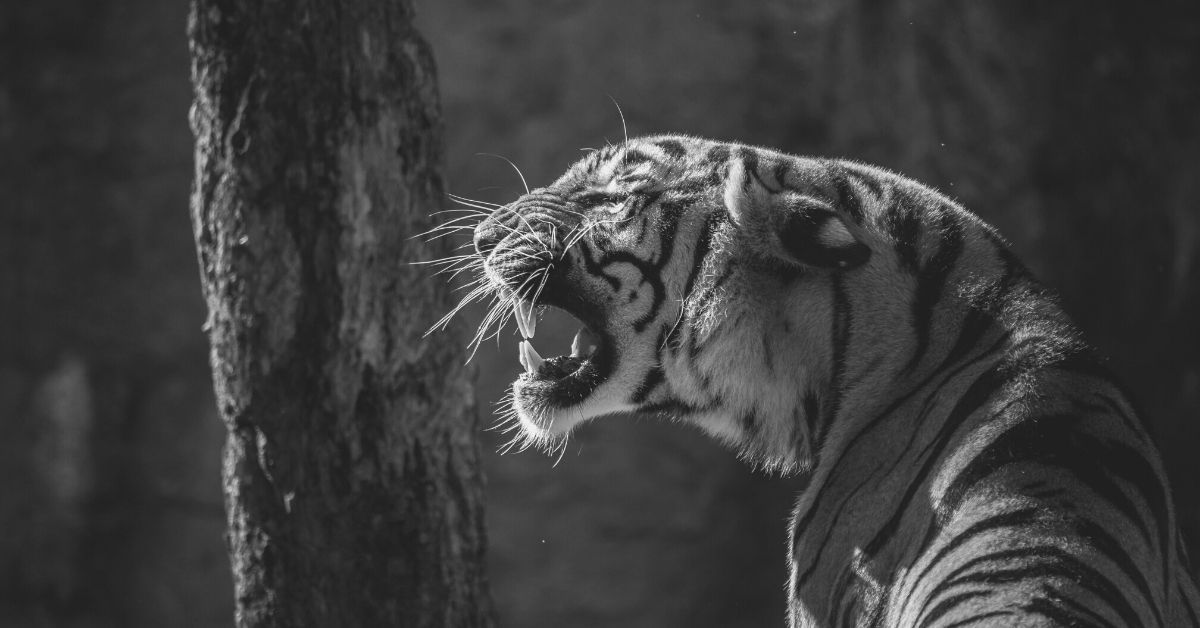Sometimes projects get a little scary. This happened to me on the third draft of a novel called LIQUID WORLD, when it started to take on a feral quality. I was worried that if I came at the revision from the wrong angle, the novel might disappear on me–or worse, turn into something lifeless.
What to do?
This feral stage is full of possibility and danger. It takes confidence, or at least a willingness to live with uncertainty. It takes trust that you will be able to befriend the feral manuscript and help it become most fully whatever it needs to be.
1. Accept its inevitability
Writer Annie Dillard says, in A Writing Life:
A work in progress quickly becomes feral. It reverts to a wild state overnight. It is barely domesticated, a mustang on which you one day fastened a halter, but which now you cannot catch. It is a lion you cage in your study. As the work grows, it gets harder to control; it is a lion growing in strength. You must visit it every day and reassert your mastery over it. If you skip a day, you are, quite rightly, afraid to open the door to its room. You enter its room with bravura, holding a chair at the thing and shouting, “Simba!”
Annie Dillard
Some writers get to the feral stage on their first draft, but for me it seems to take at least two. The first draft, as my writer / musician friend Doug Harrison so pithily put it, is “instructions for a novel, with examples.” The second draft is more-or-less the right scenes but in the wrong order, and with the emotional stuff missing, erratic, or sorely undeveloped. The third draft seems to be where it starts to feel like a novel.
2. Recognize the beast
The feral stage has an impact on the rest of your life. For a while during this period, on email signatures my fingers type “All beset” instead of “All best.” I become obsessed with certain foods or TV shows (most recently, Shetland). Sometimes I carry the manuscript back and forth between home and office, feeling that only by keeping it close can I hope to make it my friend.
3. Now, really, what to do:
So what to do at the feral stage of a project?
a. Pick an objective
The novel in question was on its third draft, which looked like many writers’ first drafts. So my objective on that draft was to trace the emotional arc of two main POV characters, and rearranging plot elements in a more interesting order.
b. Make a plan
The plan will depend on your objective, and it should be flexible yet not allow for avoidance of the work. My plan required distance, because that’s the only way to see what doesn’t work in a novel you’re still writing. There are a few ways to get distance:
– put the MS in a drawer for a few months (the danger here is that you’ll stop caring about it)
– get some outside opinions (swap MSs with writer friends or get a beta read or, if you have the cash, hire an editor)
– do some distance-gaining exercises
I did the second two, because I didn’t really want to put it away for too long. I got three full manuscript critiques (from my writing group), and looked for the commonality in those. I asked another writing friend to read the first half and tell me what genre he thought the book was. (This is because I have high-concept ideas and seem to render them in a low-concept way.) And, I looked at cause and effect. This addressed my objectives of putting the plot in a more interesting order and addressing the characters’ emotional growth.
c. Proceed with enthusiasm
This takes some nerve, this part. Break the task down, if you can. Do whatever it takes to keep yourself coming back to the work at hand. Not everyone has flexibility in their work lives, but if you can figure out a way to spend time with your manuscript almost daily, do it. Or at least carry a notebook and voice memo recorder and think about it. Those great ideas won’t remember themselves. Even ten-minute stints can improve things substantially. In fact, a 3 ten-minute stints in revision can be more effective than one half-hour stint.
The bliss of mutual trust
By the time you’ve befriended your feral manuscript and gotten at least once to THE END it will be a new creature: one with whom there’s some mutual trust, that admires you back and appreciates you for bringing it to life.

